en ja es pt
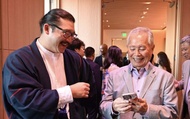
identity
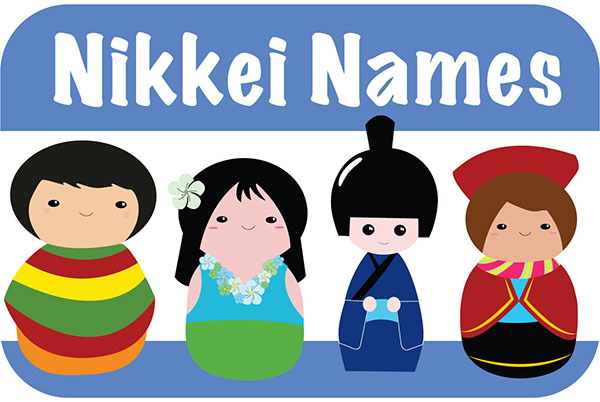
Generations ago, Japanese names were common and a marker of a person of Japanese descent, but in contemporary Nikkei culture, that may no longer be true. Names are personal, emotional, and mostly permanent…but not always.
Nikkei Chronicles #3 explored the meanings, origins, and the untold stories behind personal Nikkei names.
We solicited stories from June to October of 2014, and voting closed on December 15, 2014. The 36 stories (26 English; 1 Japanese; 2 Spanish; and 8 Portuguese) were received from Brazil, Canada, Peru, and United States.
Thank you very much to everyone who submitted their Nikkei Names stories!
For this series, we asked our Nima-kai community to vote for their favorite stories and an editorial committee to pick their favorites. In total, five favorite stories were selected. Here are their favorites!
English | Japanese | Spanish | Portuguese
English:
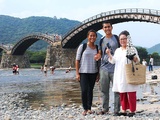
Re-Discovering My Name Between Two Cultures
By Jayme Tsutsuse
Comment from Susan Ito
I enjoyed this piece for its humor, for its unique take on names, for her unique name “Tsutsuse” and how her perception of her “Japaneseness” changed she was living in Hawaii, northern California, and finally, Japan. The piece was full of surprises, as the author herself was surprised by the origin and true meaning of her name when the kanji was scrutinized in Japan. Her identity as a Japanese person shifts depending on her environment and on the expectations of the people around her. Ultimately, she learns to be comfortable with herself, regardless of the perceptions of others.
Comment from Andrew Leong
Jayme Tsutsuse’s tale of rediscovering her name, as genealogical mystery, playground riddle, and test of kanji literacy, takes us from Hawaii to California and Japan. I greatly appreciated Tsususe’s honest take on the processes of picking a name apart if only to find peace not in the saying or writing, but in the being.
Comment from Tamiko Nimura
Jayme has given us an essay about her individual name, but one that resonates across Nikkei name experiences: difficulty with pronunciation, ability to write the name in kanji (or not), and connections to cultural origin and identity. However, Jayme’s essay stands out for combining all of these factors into a cohesive journey that offers us a different insight into the flexibility of a name’s meaning. I especially appreciate her ability to depict this journey across time, cultures, nations, and spaces.
There were so many wonderful stories submitted in English that the editorial committee wanted to acknowledge a second story.
_sm.jpg)
The Child of a Thousand Generations
By Chanda Ishisaka
Comment from Susan Ito
This piece reflects the bond between a granddaughter and her Japanese grandfather. Although they do not share a common language, I was moved by the scene in which she listens to him singing karaoke in Japanese, and can hear the longing in his voice. When she questions him about the origin of her middle name, Chiyoko, he responds by writing it out in Kanji. She later learns of the strength and tenacity of her grandmother and draws upon that as inspiration to persevere during challenging times. She finds that being a “child of a thousand generations” means drawing inspiration from her ancestors and family as she grows into the future.
Comment from Andrew Leong
Chanda Ishisaka reflects upon mortality and living on, the burdens and the strengths of a name that means “child of a thousand generations.” Brave in its description of difficult emotions of grief and hard-earned realizations, Ishisaka’s story celebrates what is given by a name, without falling into sentimentalism.
Comment from Tamiko Nimura
Chanda’s essay explores the question of Nikkei names, taking the question beyond simply “how did I get my name?” but deeper, into the question, “how will I carry the legacy of my name with me?” It is notable for the transformation of its speaker and its ability to convey scenes with just the right amount of detail (for example, the grandfather singing enka while the grandkids watching Wheel of Fortune is a great scene). I also appreciated how this essay speaks across generations.
Japanese:

What It Means to Have a Nikkei Name in Brazil
By Satomi Takano Kitahara
Comment from Yukikazu Nagashima
Most people live with their names for life. In that sense, our names must have some effect on how we become who we are—they’ve got the expectation from our parents.
I read the article of Satomi Takano Kitahara from such perspective. As someone who lives in a different country and who knows next to nothing about the hardship of Nikkei people in Brazil, I got drawn into it. First and foremost, I can’t help sympathizing for people whose precious names become an easy target of piada (jokes). Kumiko perhaps is written as 久美子. It’s a name that implies her parents’ hope that their daughter will forever stay beautiful. Who could ever imagine that such hope can turn into a target of jokes about anus? As Satomi says, it’s nothing but a misery.
As for the fact that immigrants give both Japanese and Brazilian names to their children, I was deeply touched by her description: (When a name-caller has many options,) they make their own choice of what to call their loved ones—either by their Brazilian or Japanese names—on a case-by-case basis, and they switch such name-calling based on their relationship, identity and feelings. What kind of name-calling takes place in what kind of relationship? What do people call each other in what kind of emotional state? I agree with her statement that we could write an academic paper on linguistics based on this theme alone.
Nikkei people in America also call each other by both their Japanese and American names. In what kind of situation do they call Japanese names and vice versa? They must also be affected by the emotional state, and I can easily imagine that such emotional state is established by historical and/or social factors. For the nikkei people in America, there is a history of wartime concentration camps. Calling one’s child by his American name might encourage him to develop his American identity. On the other hand, if parents keep calling their child by his Japanese name, he might become more conscious about his identity as someone rooted in Japanese culture.
I should also mention that such name-calling is affected by generations and ages. In America, most Sansei or Yonsei (third or fourth generation immigrants) have American names only. It’s interesting to think about the reason behind it. If they don’t have Japanese names, why didn’t their parents give them one?
Thinking about names gives us different points of view. We could probably write multiple papers, not just one.
Spanish:
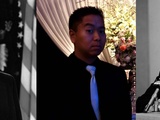
A Discordant Name Match
By Jimmy Seiji Amemiya Siu
Comment from Javier Garcia
When it comes to the first text, “My experience as a Dekasegi” by Santos Ikeda Yoshikawa, the author has depicted the experience of identification (which is not the same as identity) as leading to conflicts within the Nikkei, especially the emotional and social hardships they must face. Yet, I feel more inclined toward the text by Jimmy Seiji because I think it better fits the purpose of this project, as it presents the choice of a name as a cultural factor, in addition to the reasons and chance happenings that can define an identity, including the family background. And especially, for its evocation of the author’s ancestors and roots, while highlighting a custom that remains relevant despite the passage of time and the habits of generations.
Comment from Alberto Matsumoto
When our parents choose a Japanese name, they always look in the kanji for ideograms that have specific meanings, with much hope for the future while inspired by their ancestors, some event, or important character in history. Unquestionably, the name “Seiji” contains certain kanji characters that reflect the wishes of the grandparents. There were countries like Argentina and others, where by law one could not choose foreign first names, only family names. For that reason, even though some have felt a little embarrassment since childhood, it’s very important to have a Japanese name chosen by our grandparents or parents, and that has been registered in official birth certificates.
In the article, the author remembers that story and although he still doesn’t know for sure his name’s kanji characters, this mystery is what has encouraged him to recall his ancestors and his roots. Even if he is never elected president, as long as he honors the good name of his family, that’s more than enough. For they will be proud of the author.
Portuguese:
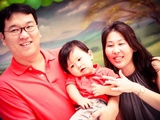
Who Am I Speaking With?
By Claudio Sampei
Comment from Laura Hasegawa
It’s an incredibly difficult task, having to choose only one among the fascinating stories that moved us and made us think about our roots and the heritage that has been passed on to us.
Congratulations to Cláudio Sampei, who enchanted us by narrating his family’s journey through various Japanese names, culminating in the remarkable research work that led to the choice of a name for their heir.
We would also like to mention Jorge Nagao’s narrative “About Japanese Names,” which features an ending with a unique touch of humor, as it presents a wordplay that only works in Portuguese.
We have closed submissions for this series, but you can still share your story on Discover Nikkei. Please check our Journal submission guidelines to share your story!
We're deeply grateful for the participation of our Editorial Committee:
In conjunction with this series, Discover Nikkei offered FREE one-time writing workshops in multiple cities and countries to encourage submissions to Nikkei Names.
Here are some photos from the workshops as well as warm-up exercises (English only) that were used during the workshops.
Message from Patricia Wakida, Chief editor of Nikkei Chronicles
Thank you once again for participating in our most recent chronicle series, Nikkei Names: Taro, John, Juan, João? This year marked the first time that Discover Nikkei went on the road to teach free community writing workshops in nine cities: Sao Paulo, Lima, Vancouver, Los Angeles, Anaheim, Gardena, San Jose, Seattle, and Chicago, where we met and worked with dozens of Discover Nikkei's Nima-kai to actively collect your stories.
Project manager Yoko Nishimura and I traveled to six of those locations where we spent time nurturing connections and sharing meals of deep dish pizza and salmon sashimi with our writing workshops' partnering organizations: the Nikkei National Museum and Cultural Centre; Orange County Buddhist Church; Gardena Valley Japanese Cultural Institute; Japanese American Museum of San Jose; Wing Luke Museum; and the Chicago Japanese American Historical Society. Each Discover Nikkei writing workshop was a surprise and a delight, filled with lively discussions on the mispronunciation of names, the deep historical meanings of family names and traditions, and stories of lost or forgotten names.
We are thrilled that over 36 essays were submitted and published, and hundreds of stars awarded by our readers to their favorite stories. So many of your touching, humorous, and deeply personal anecdotes and histories about Nikkei names have found fans from around the country.
Lastly, Discover Nikkei would like to express our warmest thanks to our many collaborators for organizing space, publicity, and refreshments for our writing workshops and to those of you who shared their day with us, related your experiences with us, and most importantly, wrote it all down and sent it in for publication.
Burnaby, BC: Saturday, July 26, from 2 p.m.–4 p.m.
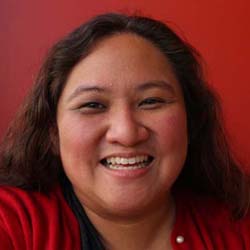
Tamiko Nimura is a Sansei/Pinay writer who grew up in Northern California and now lives in Tacoma, Washington. She is a regular contributor to Discover Nikkei, Seattle Star, and the International Examiner. Before her freelance career, she taught writing and literature for ten years. She is currently working on a memoir involving her family’s wartime incarceration in Tule Lake.
Anaheim, CA: Sunday, September 28, from 12:30 p.m.–2:30 p.m. (English)
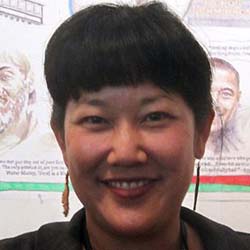
Patricia Wakida is a writer, artist and community historian currently based in Los Angeles, CA. She is the editor of two publications on the Japanese American experience, Only What We Could Carry: The Japanese American Internment Experience, and Unfinished Message: Selected works of Toshio Mori, and has worked in the publishing industry for almost twenty years. She is the editor of a forthcoming book on Los Angeles entitled LAtitudes: An Angelenos' Atlas, and is currently writing a biography of City Lights bookstore co-owner and bohemian Nisei, Shigeyoshi Murao.
Chicago, IL: Saturday, July 19, from 10 a.m.–12 p.m.
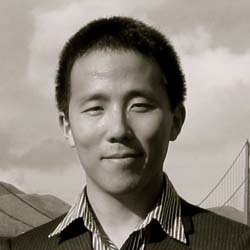
Andrew Leong is an assistant professor of English and Japanese literature at Northwestern University. He is also a translator of early Japanese American writing. His most recent translation project, Lament in the Night (Kaya Press, 2012), collected two novels by the Issei writer Nagahara Shōson, and received the 2014 Association for Asian American Studies Creative Writing Award.
Gardena, CA: Saturday, August 23, from 10 a.m.–12 p.m. (English & Japanese)

Patricia Wakida is a writer, artist and community historian currently based in Los Angeles, CA. She is the editor of two publications on the Japanese American experience, Only What We Could Carry: The Japanese American Internment Experience, and Unfinished Message: Selected works of Toshio Mori, and has worked in the publishing industry for almost twenty years. She is the editor of a forthcoming book on Los Angeles entitled LAtitudes: An Angelenos' Atlas, and is currently writing a biography of City Lights bookstore co-owner and bohemian Nisei, Shigeyoshi Murao.
Los Angeles, CA: Saturday, June 28, from 10 a.m.–12 p.m.

Patricia Wakida is a writer, artist and community historian currently based in Los Angeles, CA. She is the editor of two publications on the Japanese American experience, Only What We Could Carry: The Japanese American Internment Experience, and Unfinished Message: Selected Works of Toshio Mori, and has worked in the publishing industry for almost twenty years. She is the editor of a forthcoming book on Los Angeles entitled LAtitudes: An Angelenos' Atlas, and is currently writing a biography of City Lights bookstore co-owner and bohemian Nisei, Shigeyoshi Murao.
San Jose, CA: Sunday, September 21, from 1 p.m.–3 p.m.
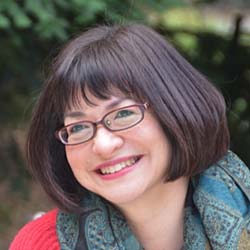
Susan Ito co-edited the literary anthology A Ghost At Heart’s Edge: Stories & Poems of Adoption (North Atlantic Books). Her work has appeared in Growing Up Asian American, Choice, Literary Mama, The Bellevue Literary Review, Making More Waves, and elsewhere. She writes and teaches at the San Francisco Writers’ Grotto, at UC Berkeley Extension, and the MFA Program at Bay Path College. Her website is http://susanito.com.
Seattle, WA: Saturday, September 20, from 2 p.m.–4 p.m.

Tamiko Nimura is a Sansei/Pinay writer who grew up in Northern California and now lives in Tacoma, Washington. She is a regular contributor to Discover Nikkei, Seattle Star, and the International Examiner. Before her freelance career, she taught writing and literature for ten years. She is currently working on a memoir involving her family’s wartime incarceration in Tule Lake.
São Paulo: Tuesday, August 26, from 7 p.m.–9 p.m. (Portuguese)
Lima: Saturday, July 5, from 9 a.m.–12 p.m. (Spanish)
Lima: Saturday, August 16, from 9 a.m.–12 p.m. (Spanish)
Gardena, CA: Saturday August 23, from 10 a.m.–12 p.m. (Japanese & English)
Thanks to Patricia Wakida for helping us pull this project together, and our wonderful volunteers who help us review, edit, upload, and promote this project!
Disclaimer: By submitting your story, you are granting Discover Nikkei and the Japanese American National Museum permission to post your article and images on DiscoverNikkei.org, and potentially other publications in print or online affiliated with this project. This includes any translations of your work in association with Discover Nikkei. You, the writer, will retain copyright. Check Discover Nikkei’s Terms of Services and Privacy Policy for more details.